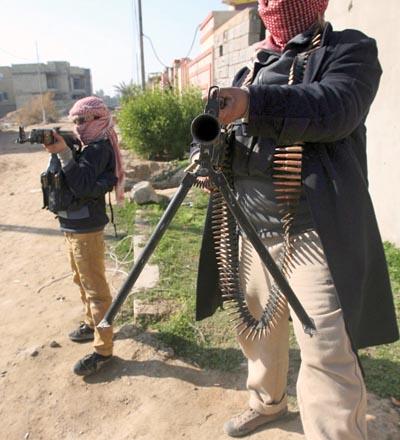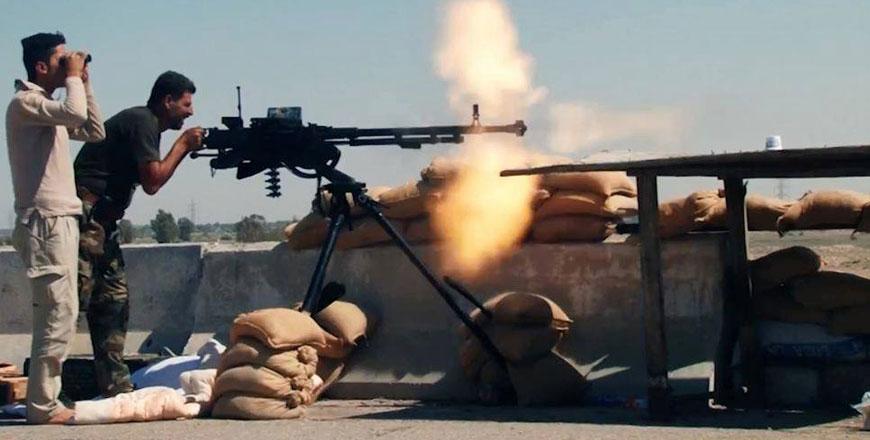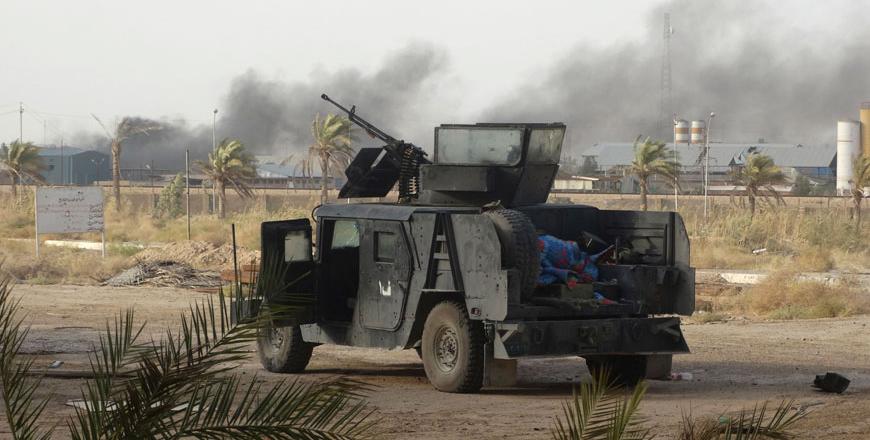BAGHDAD — A suicide bomber blew himself up at a military recruiting centre in Baghdad on Thursday, killing at least 21 people in an attack likely meant to send a message to the government and would-be army volunteers over the Iraqi troops’ ongoing push to retake two cities overrun by Al Qaeda militants.
The blast struck as an international rights group warned of the apparent use of indiscriminate mortar fire in civilian areas by Iraqi forces in their campaign to reassert control over the cities of Fallujah and Ramadi.
Al Qaeda-linked fighters overran parts of both cities in the Sunni-dominated Anbar province last week, seizing control of police stations and military posts, freeing prisoners and setting up their own checkpoints.
Iraqi troops, backed by pro-government Sunni militiamen, since have been clashing with the fighters and carrying out air strikes against their positions in an effort to reassert control of the cities.
Tribal leaders in Fallujah, 65 kilometres west of Baghdad, have warned Al Qaeda fighters there to leave to avoid a military showdown.
The United States, whose troops fought bloody battles in Fallujah and Ramadi, has ruled out sending American troops back in but has been delivering missiles to help bolster Iraqi forces, with more on the way.
Vice President Joe Biden has spoken to Iraqi Prime Minister Nouri Al Maliki twice this week, voicing support for his government’s efforts to regain control of the cities and urging him to continue talks with local, tribal and national leaders.
Iran, too, is watching the unrest with alarm as it shares American concerns about Al Qaeda-linked militants taking firmer root in Iraq. It has offered to supply military equipment and advisers to help fight militants in Anbar should Baghdad ask for assistance.
Human Rights Watch said on Thursday that Iraqi forces appear to have used mortar fire indiscriminately in civilian areas in recent days in their effort to dislodge militants in Anbar, and that some residential areas were targeted with mortar shells and gunfire even though there was no signs of an Al Qaeda presence in those specific areas.
The New York-based group said its allegations were based on multiple accounts provided by Anbar residents.
It also warned that a government blockade of Ramadi and Fallujah is limiting civilian access to food, water and fuel, and that “unlawful methods of fighting by all sides” has caused civilian casualties and major property damage.
Several approaches to Fallujah have been blocked by Iraqi troops, and only families with children were being allowed to leave with “extreme difficulty” through two checkpoints that remained open, the rights group said. It added that single men were being denied exit from the city.
“Civilians have been caught in the middle in Anbar, and the government appears to be doing nothing to protect them,” the group’s Mideast director, Sarah Leah Whitson, said in a statement.
Iraqi government officials could not immediately be reached for comment to respond to the rights group’s allegations.
The warning came a day after the United Nations and the International Committee of the Red Cross voiced concerns about growing humanitarian threats in the area as food and water supplies start to run out.
Emergency shipments of food, water, blankets and other essential items have begun reaching families displaced by the fighting in Anbar, the UN said Thursday.
Some of the initial supplies were delivered to families left stranded in schools and mosques across Fallujah.
More than 11,000 families have been displaced because of the fighting, according to UN records.
The Baghdad attacker Thursday morning detonated his explosives outside the recruiting centre in the Iraqi capital’s central Allawi neighbourhood as volunteers were waiting to register inside, a police official said. At least 35 people were wounded in the blast, he said.
A hospital official confirmed the casualty numbers. Both officials spoke on condition of anonymity because they were not authorised to talk to the media.
There was no immediate claim of responsibility, but suicide attacks are the hallmark of Al Qaeda’s Iraq branch, known as the Islamic State of Iraq and the Levant.
Thursday’s attack on the recruiting centre appears to be in retaliation for the military’s offensive and an effort to dissuade potential new recruits from bolstering the Iraqi army’s ranks.
It followed an attack late Wednesday by gunmen who struck at army barracks in Diyala province, north of Baghdad, killing at least 12 soldiers.
Al Qaeda militants, emboldened by their gains in the civil war in neighbouring Syria, have sought to position themselves as the champions of Iraq’s disenchanted Sunnis against the Shiite-led government, even though major Sunni tribes in Anbar and elsewhere oppose the group’s extremist ideology and are in some cases fighting against it.
Sectarian tensions have been on the rise for months in Sunni-dominated Anbar province as minority Sunnis protested what they perceive as discrimination and random arrests by the Shiite-led government. Violence spiked after the December 28 arrest of a Sunni lawmaker sought on terrorism charges and the government’s dismantling of a year-old anti-government Sunni protest camp in the provincial capital of Ramadi.



















